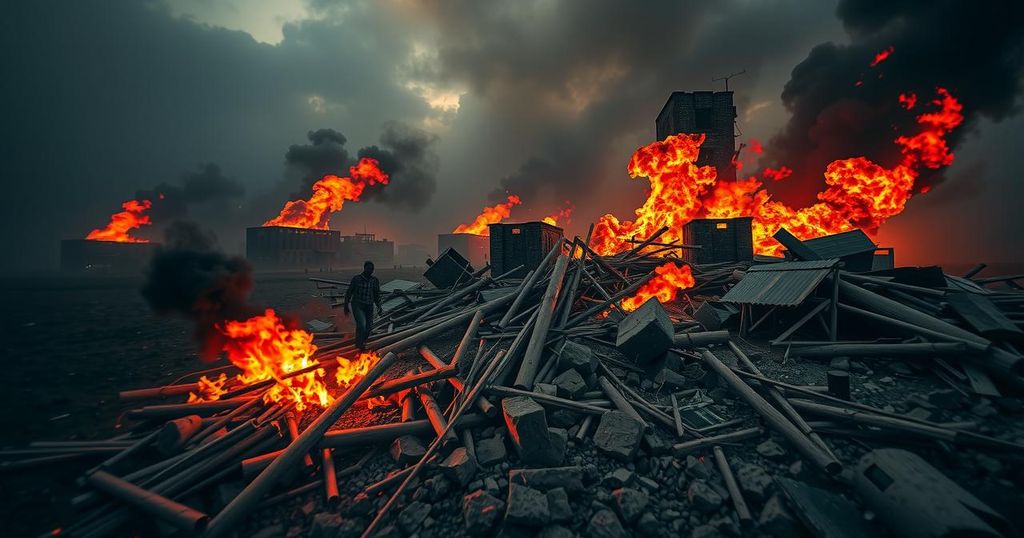Sudan has witnessed a catastrophic rise in violence, with hundreds of fatalities reported amid intensified military conflict. Following the end of seasonal rains, paramilitary groups have wreaked havoc in villages, prompting calls for UN intervention. The Sudanese military seems to be regaining territory against the R.S.F., yet both sides are accused of severe human rights violations, including ethnic cleansing. Over 10 million people have been displaced, amidst a backdrop of famine and disease outbreaks.
In recent days, Sudan has experienced a significant escalation in violence, resulting in the deaths of hundreds of civilians due to aerial bombings and retaliatory strikes. Activists have reported that paramilitary forces have perpetrated acts of destruction in villages, prompting urgent calls for a United Nations mission aimed at safeguarding civilians. The conflict, which has intensified following the conclusion of the seasonal rains, has seen changes in territorial control, with a shift in allegiance from a notable military commander and documented instances of sexual assault, abduction, and murders committed by retreating forces in contested regions. Notably, a military cargo plane crashed in the Darfur desert with at least two Russian crew members aboard, underscoring the increasing involvement of foreign contractors in the unrest. While the Sudanese military appears to be regaining footing against the Rapid Support Forces (R.S.F.), which have engaged in a prolonged battle for nearly 18 months, both factions are facing numerous allegations of war crimes. However, it is primarily the R.S.F. that has been specifically cited for accusations of ethnic cleansing. “The fighting season has just restarted, and both sides want to jostle for an early advantage,” remarked Kholood Khair, the director of Confluence Advisory. Amidst this turmoil, over 10 million individuals have been displaced, worsening the humanitarian crisis as famine and diseases such as cholera and dengue fever continue to proliferate.
The ongoing conflict in Sudan has roots in a complex struggle for power and resources, manifesting notably between the Sudanese military and the Rapid Support Forces. This violence has escalated significantly in the aftermath of political instability and civil unrest that has characterized the region. As these factions vie for control, civilians are caught in the crossfire, experiencing severe human rights violations and a growing humanitarian crisis. The involvement of foreign entities, including Russian contractors, complicates the dynamics of the conflict further. The current state of warfare has drawn international attention, with calls for intervention to protect the civilian populace amid widespread suffering.
The recent surge in violence in Sudan illustrates the dire humanitarian situation facing civilians amid ongoing hostilities between military factions. As the conflict escalates, the international community faces increasing pressure to respond effectively to protect displaced individuals and address the critical issues of war crimes and public health crises exacerbated by warfare. The urgency for humanitarian assistance and potential diplomatic intervention cannot be overstated, given the growing toll on civilian lives and the need for sustainable peace in the region.
Original Source: www.nytimes.com






